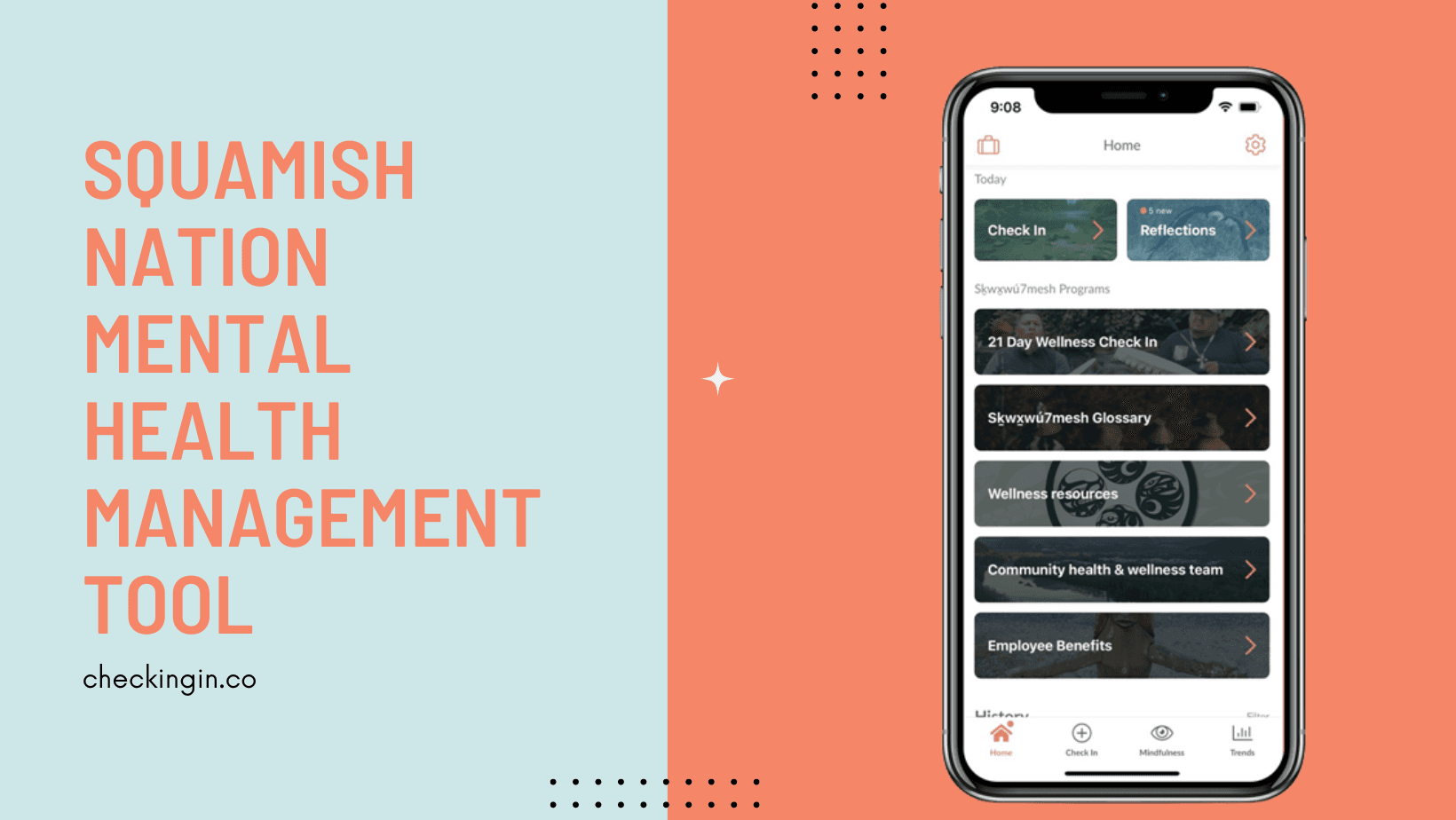Collaboration with Squamish First Nation
October 1, 2025by Carissa Harrison in Announcements
We are thrilled to announce our collaboration with Squamish First Nation!
CheckingIn operates on the traditional territories of the xʷməθkʷəy̓əm (Musqueam), Sḵwx̱wú7mesh (Squamish), and səlilwətaɬ (Tsleil-Waututh) people.
Mental health is a major priority for First Nations, Inuit, and Métis peoples in Canada as higher rates of anxiety, depression, and attempted suicide are reported among Indigenous people, compared to non-Indigenous people. First Nations youth are nine times more likely to experience mental health problems than their non-Indigenous Canadian peers.
CheckingIn has partnered with Squamish First Nation to offer a specialized mental health management system. The tool will provide mental health interventions based on Indigenous ways of knowing and being. The design process was led by Indigenous people from the Yúustway Community Health & Wellness team.
Three components have been proven to improve mental health outcomes for Indigenous people: culturally grounded indoor and outdoor activities, Elder and peer mentorship, and participation in collective activities with Indigenous Elders and peers. CheckingIn's culturally sensitive interventions will support strong connections to community and land while providing a holistic view of health that includes the physical, emotional, and spiritual well-being of the user and their community.
The management tool CheckingIn created in collaboration with Squamish Nation is a pilot project that will continually become available to more users. Our hope is that the format we created with Squamish Nation serves as a starting point for collaborations with other Indigenous communities across Canada.
The customized Workplace Mental Health Management Tool includes:
1) The classic CheckingIn features - A place to check in and a place to reflect.
2) The 21-Day Challenge - When users check in, they gain access to videos that teach traditional wellness modalities.
3) Sḵwx̱wú7mesh Glossary - Here users can learn more about the Squamish Nation language and terminology.
4) Wellness Resources - In this area of the app, users learn about traditional wellness techniques and how to implement them into their lives.
5) Community Health and Wellness Team - Here, users can learn about professionals in their community that can help with their individual needs.
This project tangible supports the objectives and principles of the United Nations Declaration on the Rights of Indigenous Peoples. Our aim is that this collaboration, in the Canadian context, will provide insight into the benefits of community-designed interventions in supporting Indigenous groups worldwide.

